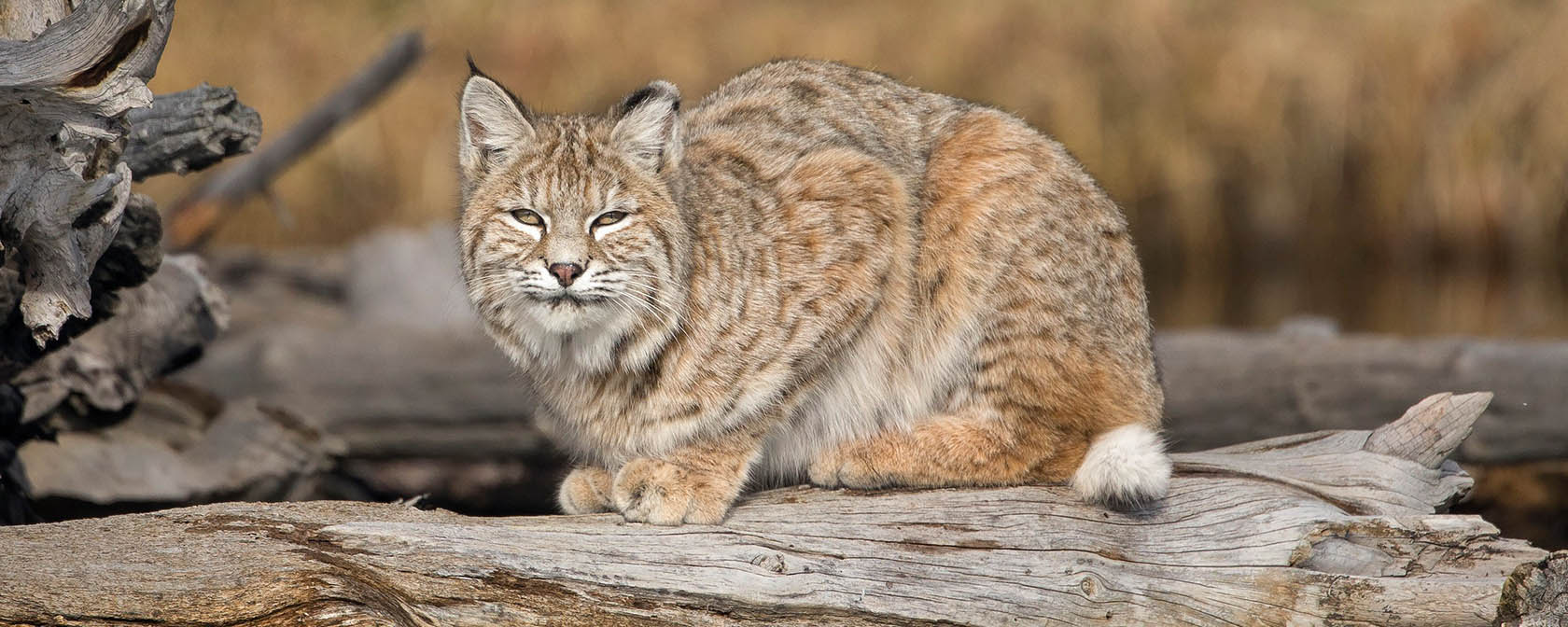By Sara Amundson and Kitty Block
Today, the U.S. Fish and Wildlife Service announced it will be proposing a rule that would ban predator control on the National Wildlife Refuge System. When finalized, this rule will be a huge victory for countless wildlife living on refuges.
The National Wildlife Refuge System is home to thousands of wildlife and fish species, including many iconic and beloved native carnivores, many of which depend on these refuges for their survival. This rule would protect native carnivores living on refuges, including wolves, bears, coyotes, cougars, foxes and bobcats. This rule proposes to ban predator control, which would save these species from senseless slaughter and provide them with the protections they deserve and need to survive.
“Predator control” programs are often the cause of severe pain and cruelty for animals. Conducted on various scales by individuals, states and the federal government, these operations aim ostensibly to protect farm animals or increase deer, elk or other cervid populations. But neither of these goals is supported by sound science, according to many conservation biologists. The HSUS’s own reports show that predators kill few farmed animals each year, less than 1% of cows and sheep put out to graze on public and private lands. Owners of farm animals can take commonsense precautions to protect their animals. Wild cervid populations are often limited naturally by weather events such as too much or too little precipitation, disease and the carrying capacity of the land.
Many predator control methods are cruel. If animals are shot from the air, the gunners may not make a clean kill, wounding and leaving the animal to die slowly from blood loss. Animals caught in traps will struggle to escape, breaking or injuring their legs, paws or teeth. Animals caught in neck snares may suffer edema, or what trappers call “jelly head,” a condition in which blood rushes to the animal’s head and cannot go back out, causing excruciating swelling. Some baits used to attract animals are toxic and can cause painful conditions like seizures, vomiting and heart arrhythmias. Hunting down wild animals with packs of radio-collared hounds can result in gruesome fights that can injure or kill all animals involved, and also put dependent young kittens, pups or cubs in the crosshairs, sometimes leading to their deaths as well.
If finalized, this rule would help provide a science-based approach for managing wildlife on refuges in addition to supporting conservation and giving wildlife refuge managers better tools to address the complicated threats of climate change and biodiversity loss.
The National Wildlife Refuge System dates to the early 1900s, when President Theodore Roosevelt established the first, with an aim to protect nesting birds: Pelican Island National Wildlife Refuge. In accordance with its original intentions, the National Wildlife Refuge System should be a sanctuary. It is the only network of federal lands and waters in the U.S. dedicated to the conservation of native wildlife. There are currently 570 national wildlife refuges in the U.S., occupying 95 million land acres and 750 million marine acres across all 50 states and five U.S. territories. The refuges are also very popular with the public, generating more than 67 million annual visits every year.
To help ensure essential protections for native carnivores, we’ll be fighting for the swift approval and implementation of this new rule, submitting substantive comments supporting the proposed rule during this 30-day comment period. You can communicate your excitement for this positive action for native carnivore species, too: Tell the U.S. Fish and Wildlife Service to adopt the proposed rule to prohibit predator control on the National Wildlife Refuge System.
Thousands of wild animals depend on National Wildlife Refuges to provide them with safe habitat where they can live and raise their young. We are dedicated to making this a reality.
Kitty Block is CEO of the Humane Society of the United States.




